Martial Arts Jefferson Georgia: Why Families Thrive at Choe’s HapKiDo Jefferson
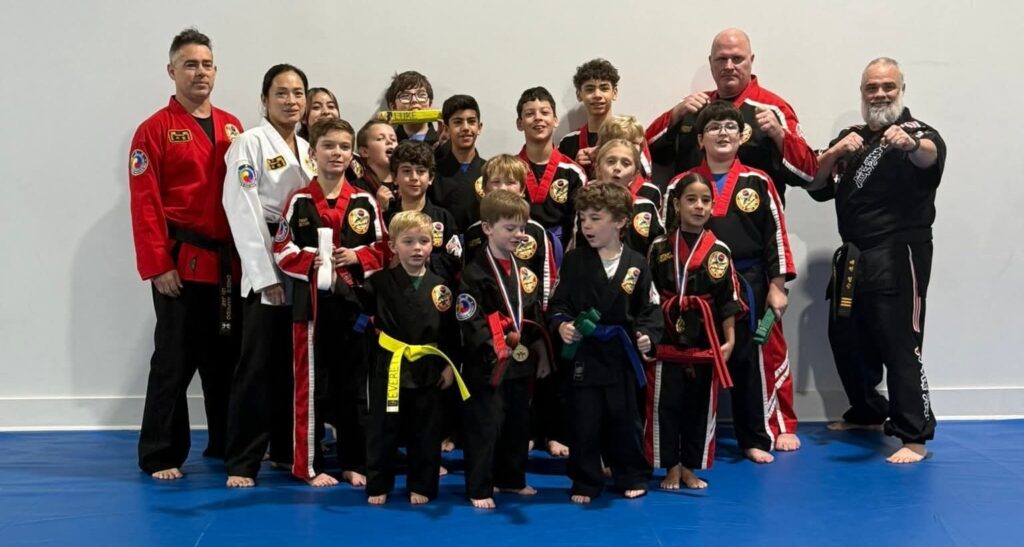
Step inside Choe’s HapKiDo Jefferson, and you’ll feel it right away — the energy, the laughter, the focus. Students of all ages are training hard, encouraging one another, and learning that growth happens not just through skill, but through community. This is a place where confidence, respect, and friendship come together in every class. At […]
Martial Arts Flowery Branch Georgia: 4 Reasons Families Love Choe’s HapKiDo Flowery Branch
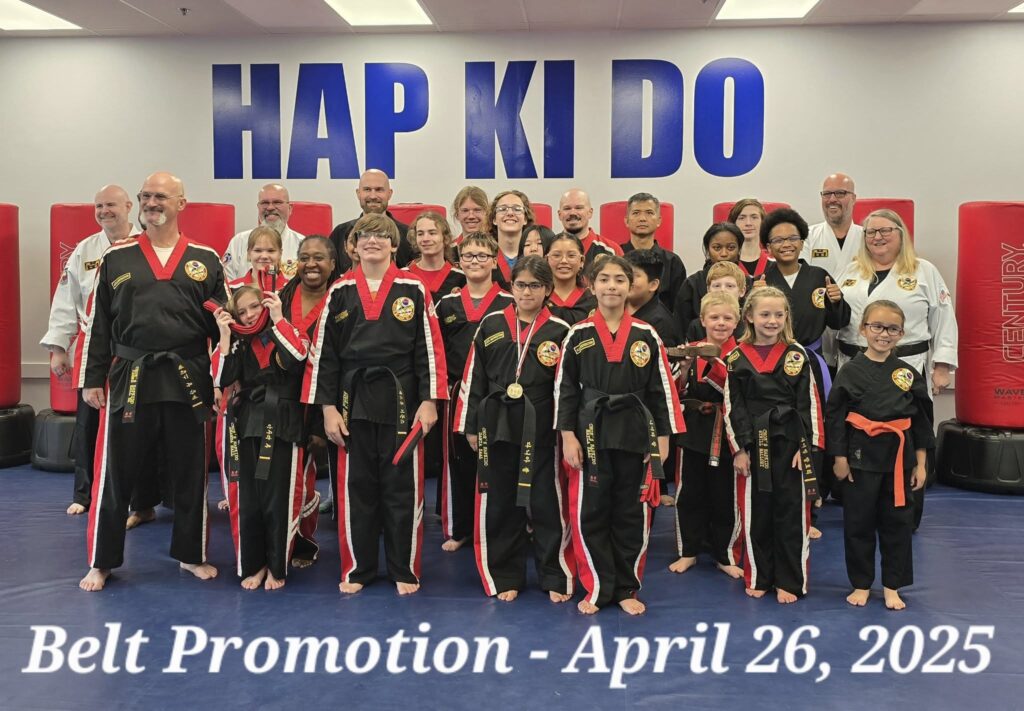
Martial Arts Flowery Branch Georgia is where families come together to train under one roof. Step inside Choe’s HapKiDo Flowery Branch, and you’ll instantly feel the warmth and excitement that make this place special. The mats buzz with laughter, encouragement, and determination as students of all ages practice self-defense and teamwork side by side. Behind […]
Martial Arts Cumming Georgia: The Family Experience at Choe’s HapKiDo Cumming
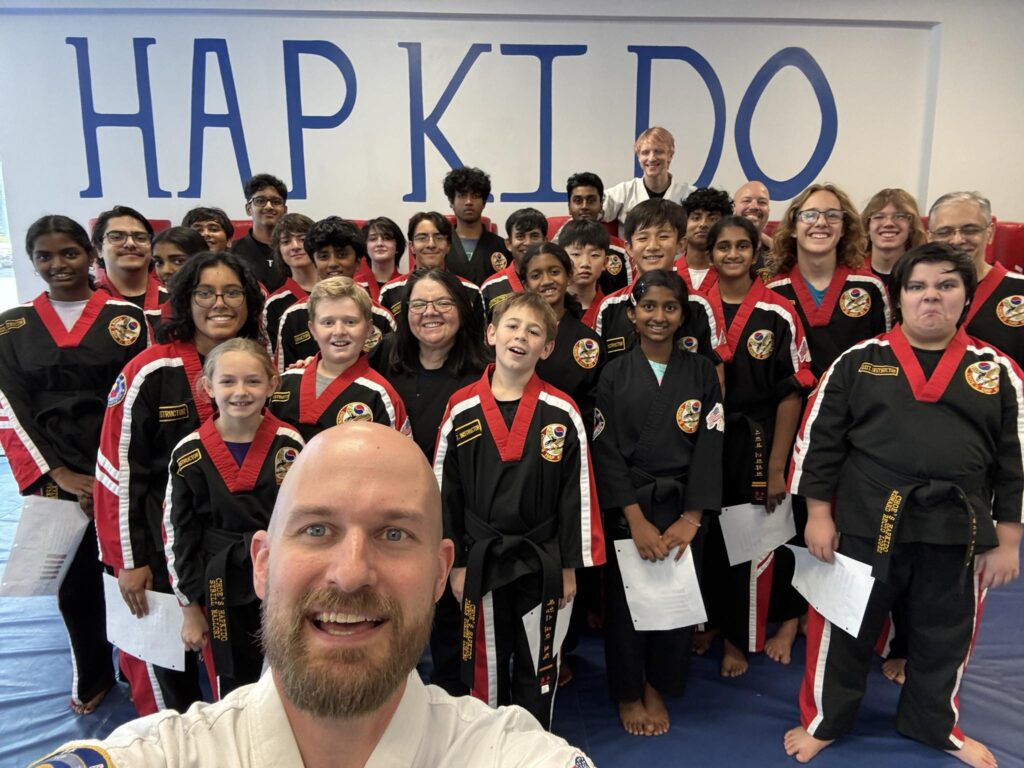
When you walk through the doors of Choe’s HapKiDo Cumming, you can feel the energy right away. Smiles, laughter, focus, and encouragement fill the mats. Students are learning powerful self-defense moves — but what really stands out is the sense of family. At our school, martial arts isn’t just about kicking and punching. It’s about […]
Martial Arts Championships: 5 Powerful Ways They Shape Students and Communities
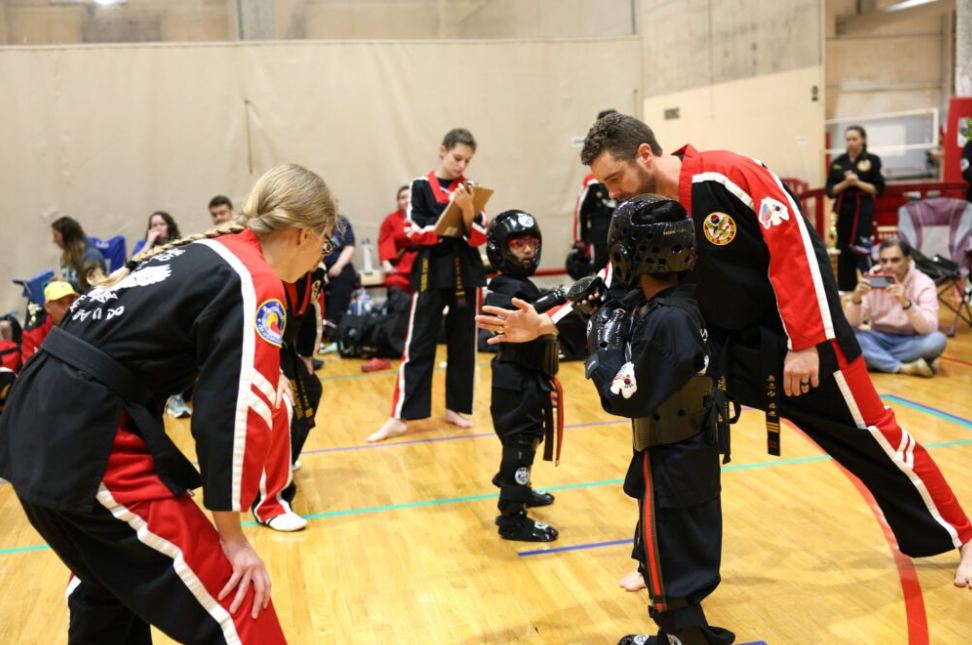
How Martial Arts Championships Create Lasting Growth for Students and Families Are martial arts competitions worth the hype, time, and effort? At Choe’s HapKiDo, we are fortunate to host two competitions every year—one in spring and fall. In fact, each season brings in new energy, while boosting community engagement. How we see it, martial arts […]
Discipline and Respect in Martial Arts for Kids: 3 Proven Benefits That Make a Real Difference
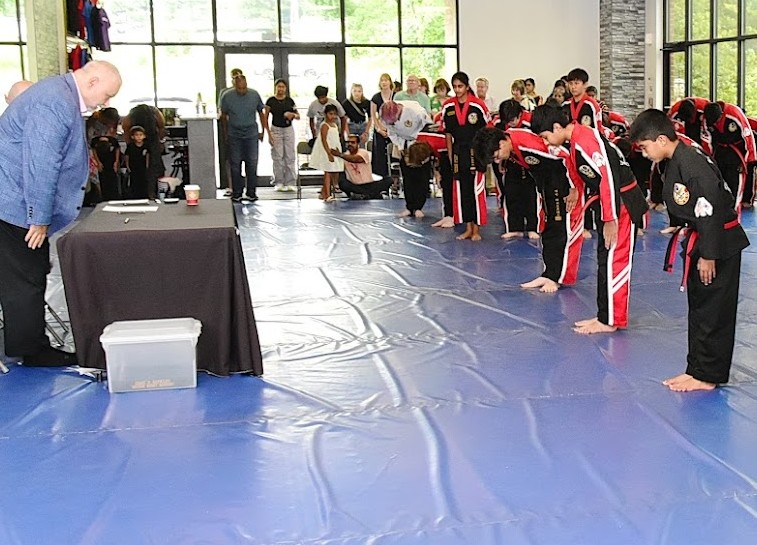
Discipline and Respect in Martial Arts for Kids Discipline and Respect in Martial Arts for Kids isn’t just a slogan—it’s something children actively practice every time they step into the DoJang. Among all the after-school activities parents consider, martial arts often rises to the top. Why? Sometimes kids misbehave at home, ignore instructions in class, […]
Family Friendly Martial Arts Cumming: Why Families Choose Choe’s HapKiDo
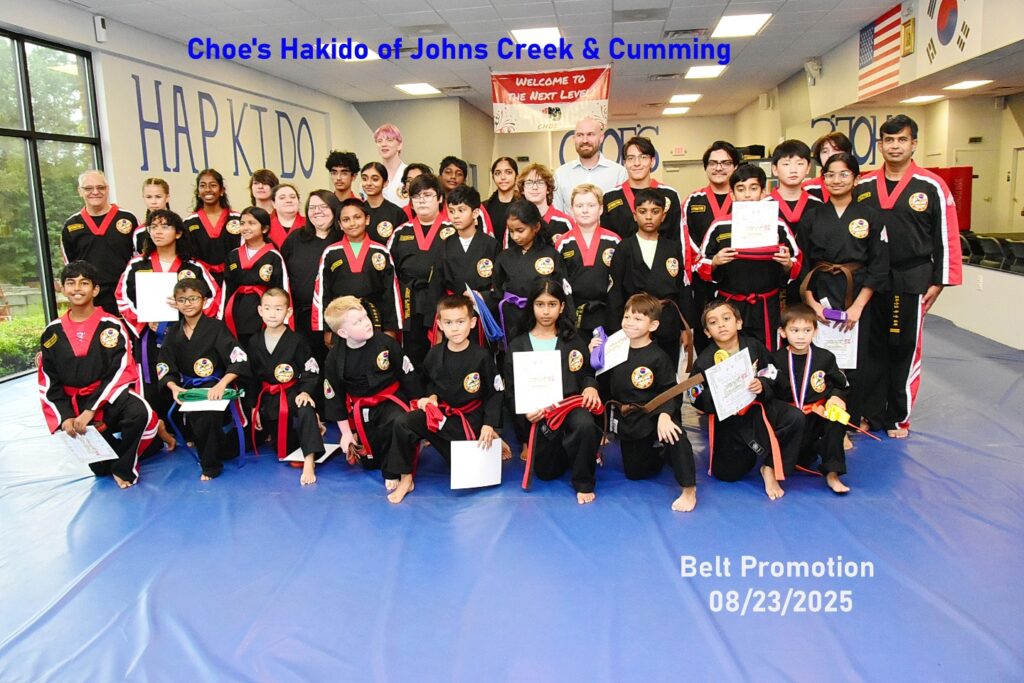
When searching for Family Friendly Martial Arts Cumming, many parents are hoping to find a program that everyone in the household can enjoy. At Choe’s HapKiDo Cumming, families often discover that training together creates lasting memories while also supporting individual growth. The energy inside the school is welcoming, respectful, and motivating, making it a space […]
Happy Labor Day Weekend! – The Benefits of Rest Days
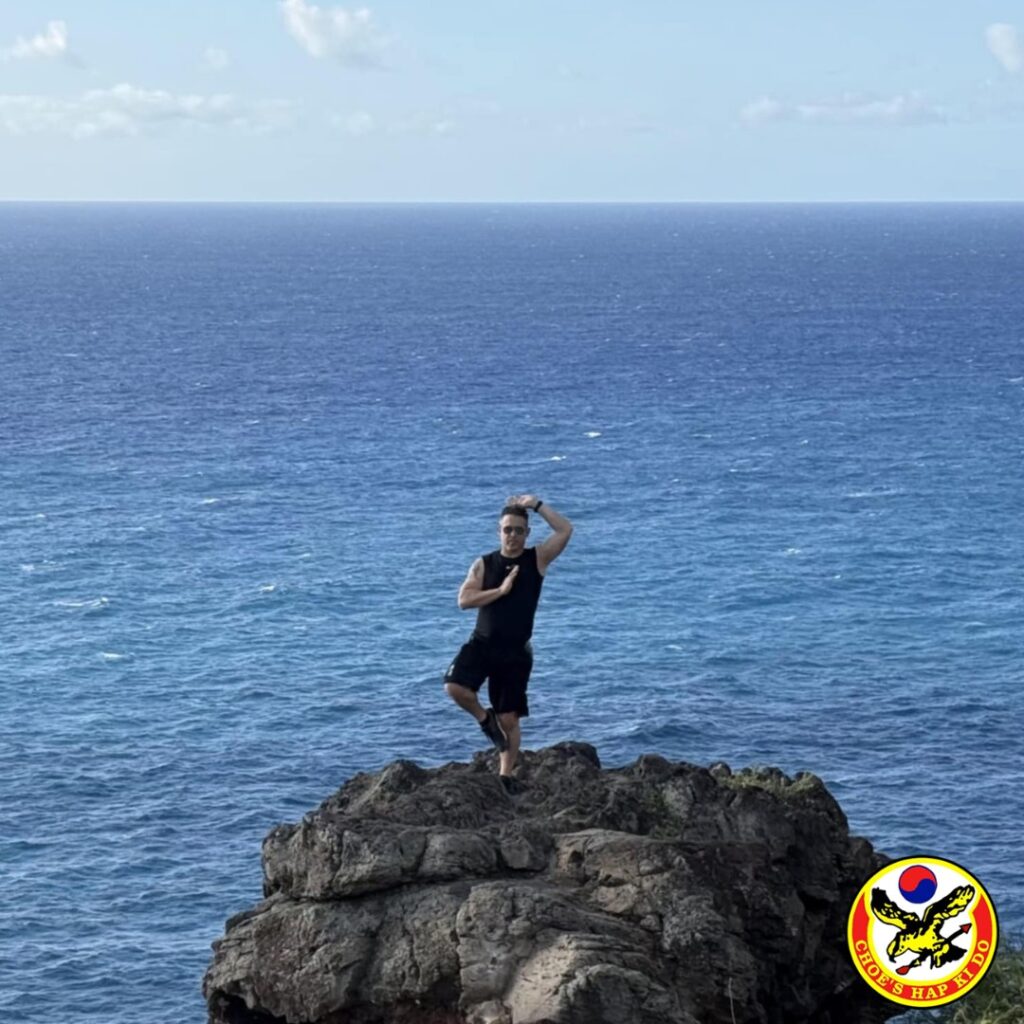
With Labor Day around the corner, it’s a good reminder that hard work and rest go hand-in-hand. In martial arts—and in life—rest days aren’t lazy; they’re essential. Whether you’re pushing through martial arts drills or tackling everyday responsibilities, taking time to rest and recharge boosts energy, sharpens focus, and keeps you coming back stronger. Here’s […]
How Adults of Any Age Can Start Martial Arts Today
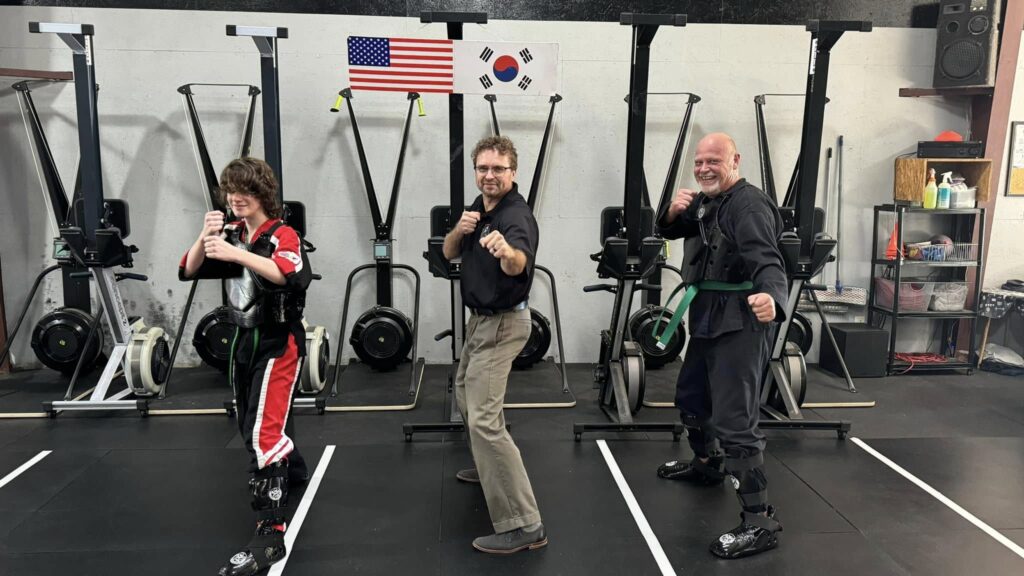
Maybe you’ve been considering trying something new—something active, challenging, and rewarding. Martial arts might have come to mind, but you’re wondering if it’s too late to begin. The good news is, martial arts is accessible to adults at all stages of life. Whether you’re 35, 45, or older, our adult martial arts classes allow students […]
How Martial Arts Helps Kids in School
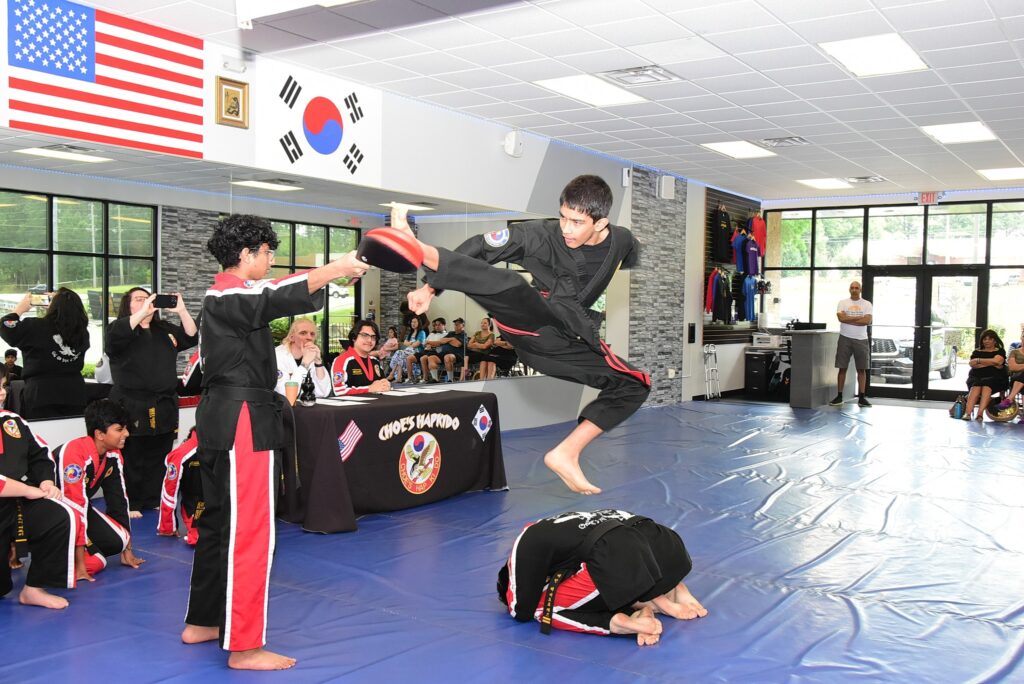
We’re excited about the new school year starting! Back-to-school season brings fresh opportunities—but also new challenges like adjusting to routines, meeting different teachers, and managing bigger expectations. That’s where martial arts can make a big difference. Beyond kicks and punches, martial arts helps kids build the focus, confidence, and resilience they need to succeed at […]
Before Your First Class: What to Expect in a Martial Arts Program
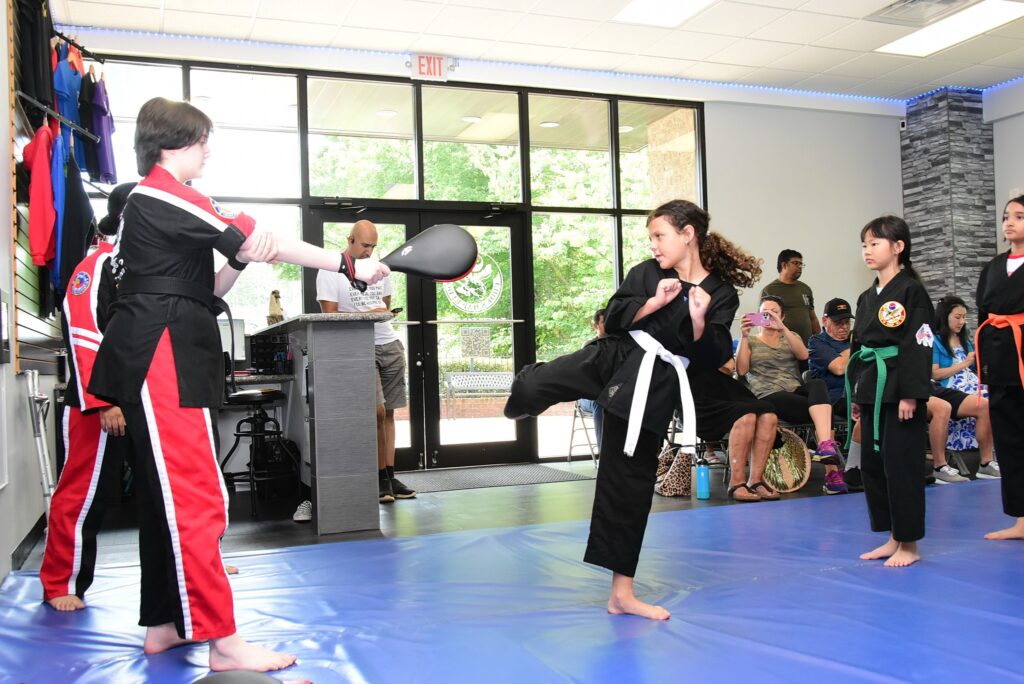
Starting something new can feel a little nerve-wracking—but that’s totally normal! Whether you’re walking into a dojang (martial arts studio) for the very first time or simply curious about signing up, understanding what to expect can go a long way in calming those first-time jitters. If you’ve been thinking about beginner martial arts, this guide […]
